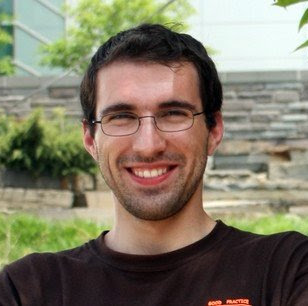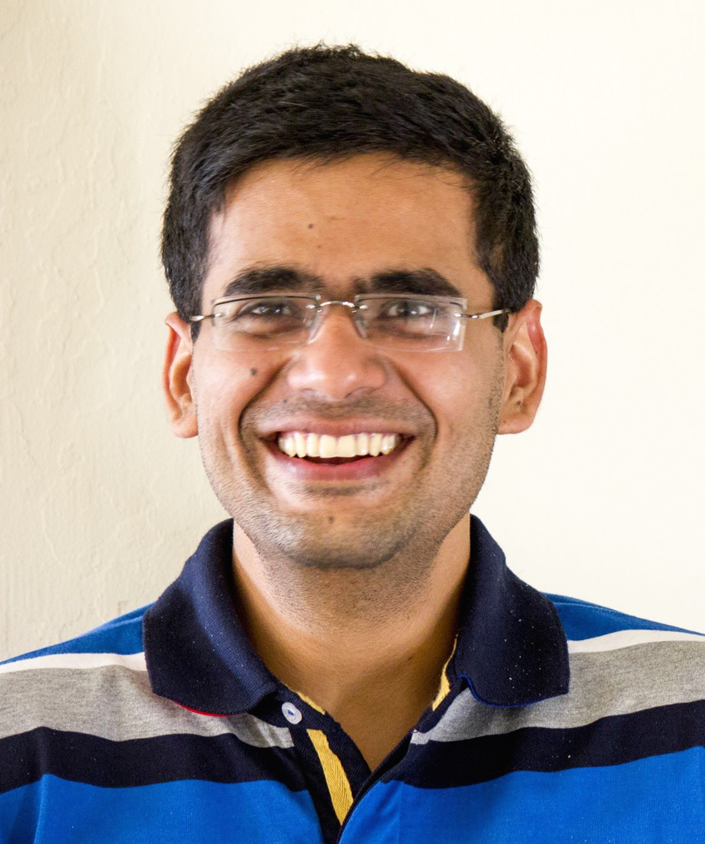Faculty Candidate
Faculty Candidate: Human-centric Understanding of 3D Environments
Areas of Interest: Human-centric 3D Scene Analysis, Scene synthesis for 3D content creation and learning through simulation, Data visualization Abstract: Creating 3D environments is hard. Experts spend much time and effort using complex software to create virtual 3D interiors. This 3D content creation bottleneck limits the use of virtual environments for applications in entertainment, [...]
Faculty Candidate: Recovering a Functional and Three Dimensional Understanding of Images
Areas of Interest: 3D Vision Abstract: What does it mean to understand an image? One common answer in computer vision has been that understanding means naming things: this part of the image corresponds to a refrigerator and that to a person, for instance. While important, the ability to name is not enough: humans can effortlessly [...]
Faculty Candidate: Katie Bouman
Areas of Interest: Computational imaging, computational photography, computer vision, image and video processing, inverse problems, machine learning Host: Srinivasa Narasimhan Admin Contact: jessb@andrew.cmu.edu
Faculty Candidate: Toward Semi-Autonomous Surgical Tasks using Continuum Robots: Modeling, Calibration, and Intelligent Assistance
Abstract: Continuum robots for surgical applications can support complex surgical tasks within deep confined spaces of the body. Such surgical paradigms often present surgeons with sensory and surgical scene interpretation challenges that diminish situational awareness. These robots can reach deep into the body, while in some scenarios, using them in a semi-automated mode of operation [...]
Faculty Candidate Talk: Computational Design for the Next Manufacturing Revolution
Areas of interest: Computational design for manufacturing Abstract: Over the next few decades, we are going to transition to a new economy where highly complex, customizable products are manufactured on demand by flexible robotic systems. In many fields, this shift has already begun. 3D printers are revolutionizing production of metal parts in the aerospace, automotive, [...]
Faculty Candidate Talk: Visual Perception and Navigation in 3D Scenes
Abstract: In recent times, computer vision has made great leaps towards 2D understanding of sparse visual snapshots of the world. This is insufficient for robots that need to exist and act in the 3D world around them based on a continuous stream of multi-modal inputs. In this talk, I will present some of my efforts in bridging this gap between computer vision and robotics. I will show [...]
Faculty Candidate: Probing Light Transport for 3D Shape
Abstract: There is a rising demand for high-performance 3D sensors in response to the rapid development of autonomous cars, 3D printers, and virtual/augmented reality systems. These sensors often make use of controllable light sources to send light signals into an environment, and cameras to measure the signal reflected back in response. This approach can, however, fail [...]
Carnegie Mellon University
Social Signal Processing: A Computational Approach to Sensing, Reconstructing and Understanding Social Interaction
Abstract: Humans convey their thoughts, emotions, and intentions through a concert of social displays: voice, facial expressions, hand gestures, and body posture. Despite advances in machine perception technology, machines are unable to discern the subtle and momentary nuances that carry so much of the information and context of human communication. The encoding of conveyed information [...]
Faculty Candidate: Petter Nilsson
Areas of Interest: Improving design practices and advancing the capabilities of autonomous systems Host: Stephen Smith Admin Contact: Keyla Cook keylac@andrew.cmu.edu
Multimodal Computational Behavior Understanding
Emotions influence our lives. Observational methods of measuring affective behavior have yielded critical insights, but a persistent barrier to their wide application is that they are labor-intensive to learn and to use. An automated system that can quantify and synthesize human affective behavior in real-world environments would be a transformational tool for research and for [...]









